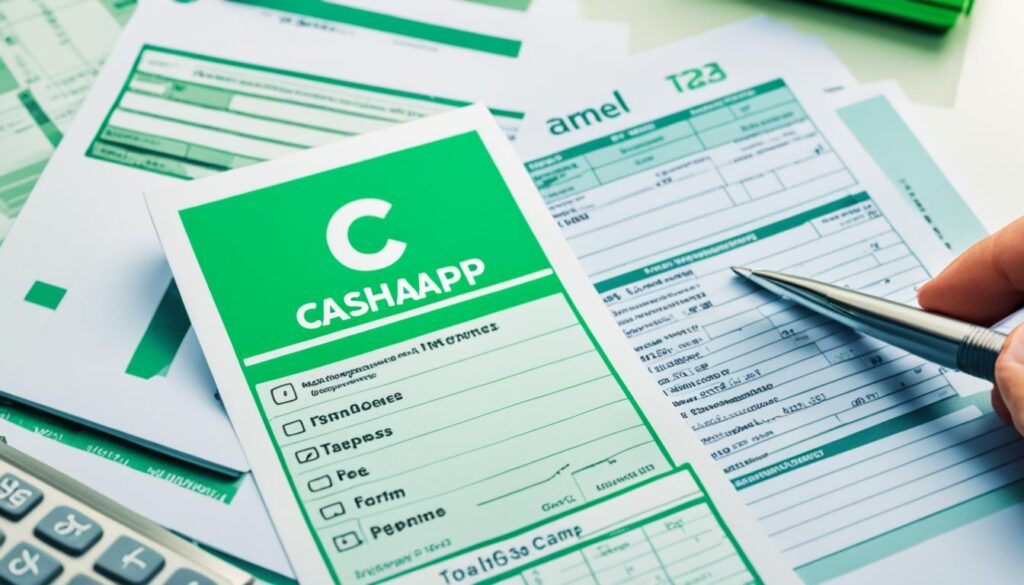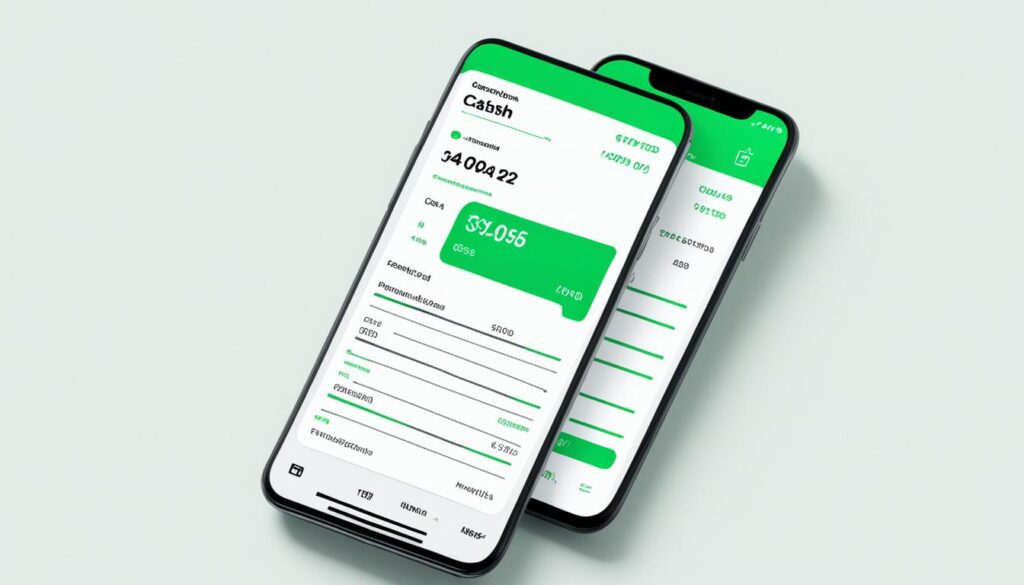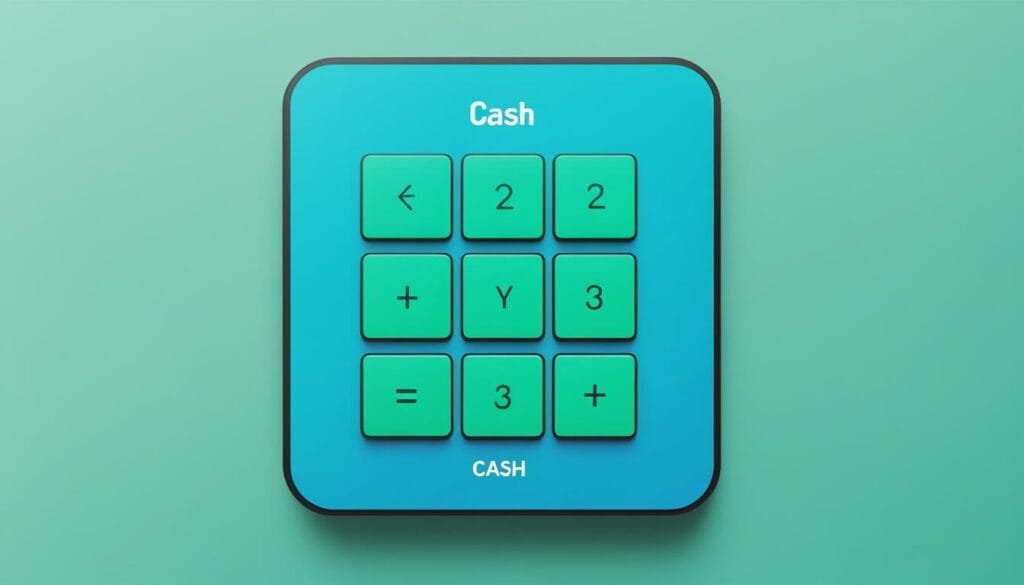Did you know 70% of CashApp users don’t know they have to pay taxes? This fact shows how important it is to understand CashApp tax reporting and documentation. With payment processor taxes changing, knowing about peer-to-peer payment taxes is key.
CashApp has changed how we manage money. But, with its ease comes the need for responsibility. For the 2022 tax year, businesses got a 1099-K form if they made over $20,000 and had more than 200 transactions1. But, the 2023 tax year changed this, with 1099-K forms sent for transactions over $6001.
It’s crucial to know your tax duties to avoid fines. Not filing taxes on time can lead to a 5% penalty on your tax bill, going up to 25% monthly1. CashApp gives out 1099-B forms for Bitcoin sellers, showing gross proceeds. But, the cost basis might not be full, especially for transfers in or out of the app.
To get through these issues, it’s key to tell apart business and personal transactions1. This helps avoid double-reporting and paying too much in taxes. Remember, CashApp tells the IRS about your transactions, so you must follow the rules to avoid fines for not paying taxes.
Key Takeaways
- CashApp users must understand their tax obligations to avoid penalties
- 1099-K reporting thresholds have changed for the 2023 tax season
- Differentiating between business and personal transactions is crucial
- CashApp provides 1099-B forms for Bitcoin transactions
- Incomplete cost basis information may require additional documentation
- CashApp reports to the IRS, making accurate reporting essential
Understanding CashApp Tax Obligations
CashApp users must understand their tax duties, especially with new mobile payment tax laws. These changes affect both personal and business users.
How cryptocurrency is taxed in the US
In the US, cryptocurrencies like Bitcoin are seen as property for tax reasons. This means any profits or losses from crypto deals are taxed as capital gains. Users must report these in US dollars.
Identifying taxable events on CashApp
On CashApp, selling Bitcoin and getting paid for goods or services are taxable events. For business accounts, you must report if you made over $20,000 or had more than 200 transactions in 20232. But, payments from friends and family are not taxed2.
Capital gains and losses reporting
You need to figure out your capital gains or losses by comparing the buy and sell prices of cryptocurrency. CashApp might give tax papers for buying or selling Bitcoin or stocks on its platform3. But, you’ll need to report more if you used other exchanges or wallets too.
| Account Type | Reporting Threshold | Tax Form |
|---|---|---|
| Business | >$20,000 and >200 transactions | Form 1099-K |
| Personal | N/A | No Form 1099-K |
CashApp helps, but it doesn’t give tax advice. It’s best to talk to tax experts for help3. This is key as the IRS often updates rules on reporting from third-party groups and gig economy deals4.

CashApp Tax Reporting and Documentation
CashApp users must understand their tax duties, especially with reporting income and transactions. The platform offers Form 1099-K for those who hit certain income levels, aiding in accurate IRS reporting5.
In 2023, CashApp hit a milestone with 55 million users. For business use, payments on the app are seen as income and must be reported to the IRS6. This rule covers both regular businesses and self-employed folks using CashApp for work.

For the 2023 tax year, CashApp sends out Form 1099-K to those making over $20,000 in business income and having more than 200 business transactions6. It’s key to keep personal and business transactions separate to avoid tax filing issues5.
Looking forward, the IRS is tweaking reporting rules. Starting in 2024, Form 1099-K will go out if users make more than $5,000 in business income6. This change aims to make reporting clearer and less confusing for taxpayers.
CashApp offers tax documents, but keeping detailed records of all transactions is vital. This includes records of cryptocurrency buys, sells, and swaps5. Such records help ensure tax reports are correct and avoid mistakes.
Using different payment services like Venmo, Zelle, and PayPal also has tax reporting rules. Having separate business accounts on these platforms makes tax form reporting easier5.
With the tax reporting for digital payments being complex, getting professional tax advice is a good idea for accurate reporting from mobile payment apps5. This helps users deal with the changing digital payment tax rules and follow IRS guidelines.
Navigating CashApp’s Tax Forms
It’s key to understand CashApp tax reporting and documentation if you handle cryptocurrency on the platform. With over 51 million users each month, CashApp is a go-to for buying and selling Bitcoin7.
The 1099-B Form Explained
CashApp gives users a 1099-B form. This form shows the gross proceeds from Bitcoin sales. It’s vital for tracking your cryptocurrency dealings. But, remember, the 1099-B form has its limits.
Limitations of CashApp’s Tax Reporting
A big issue with CashApp’s tax reporting is missing cost basis info. Often, the Cost Basis field is empty, especially for Bitcoin transferred between users. This makes figuring out your tax gains and losses hard.

Dealing with Incomplete Cost Basis Information
Here’s how to handle missing cost basis data:
- Keep detailed records of all your crypto transactions
- Use crypto tax software to combine data from different places
- Figure out cost basis using different accounting methods
Following these steps helps with accurate CashApp tax reporting. Remember, getting taxes right is key. The IRS charges 5% of unpaid taxes each month, while inability to pay is only 1%78.
Importing CashApp Data for Tax Purposes
CashApp has over 70 million users in the U.S. as of 2021. It makes it easy to import data for taxes910. This is key for handling peer-to-peer payment taxes and reporting to third-party settlement organizations.
To begin, log into your CashApp account from a computer. Go to the ‘Statements’ section in the top right corner and pick ‘Export CSV’. This file has all your transactions, which is vital for taxes.
CashApp sends IRS Form 1099-B by February 15th of the next year if you sold Bitcoin last year11. This form shows your Bitcoin sales profits but doesn’t give cost basis details11.
For a full tax report, think about using crypto tax software like CoinLedger or ZenLedger. These tools let you import CashApp data in several ways:
- Uploading the CSV file
- Syncing via read-only API
- Entering transactions manually
CashApp only has records for its platform. If you’ve used other exchanges, you’ll need tax info from those places too11. Keeping accurate records and getting help from a pro can prevent mistakes in crypto tax reporting10911.
Tax Implications for Sponsored Accounts
Sponsored accounts on cash payment apps have special tax rules. It’s important for both sponsors and those sponsored to know these rules. This ensures they follow cash payment app tax laws.
Sponsor Responsibilities in Tax Reporting
Sponsors have big tax reporting duties. If a sponsorship ends, the account can’t use certain features like Cash Card or invest in stocks12. The sponsor must report all stock and Bitcoin sales. They will get a Form 1099 in their name12.
Liquidation of Assets in Sponsored Accounts
When a sponsorship ends, the account’s assets might be sold. Bitcoins are turned into USD, and stocks are sold too. This can lead to tax issues for both the sponsor and the sponsored person.
Accessing Tax Documents for Sponsored Accounts
Sponsors can find tax documents for sponsored accounts on their CashApp profile. Remember, cash payment apps don’t give tax advice. It’s best to talk to tax experts for specific questions123.
| Transaction Type | Tax Reporting Threshold | Form Issued |
|---|---|---|
| Business Transactions | $600+ annually | 1099-K |
| Personal Transactions | Not applicable | None |
| Stock/Bitcoin (Personal) | Any amount | Other tax documents |
New tax laws for mobile payments have changed reporting rules. The American Rescue Plan Act of 2021 lowered the business transaction reporting to $600 a year, starting in 20223. But, personal transactions don’t have to be reported313.
Leveraging Crypto Tax Software for CashApp Transactions
Managing taxes for CashApp can be tough, especially for those trading cryptocurrencies often. Crypto tax software helps make this easier. It helps manage taxes for CashApp, Venmo, and Zelle transactions.
Benefits of using specialized tax software
Crypto tax software makes tax prep for cryptocurrency traders easier. It cuts down on time and costs by importing transactions and filling out IRS forms automatically14. This is great for CashApp users, as they face fees of up to 3% on Bitcoin transactions15.
Step-by-step guide to importing CashApp data
To get CashApp data into tax software, just a few steps are needed. First, download your transaction history from CashApp. Next, upload this file to the tax software. The software then processes the data, combining info from different platforms if needed.
This is important because Cash App is very popular in the US, with over 50 million users16.
Generating comprehensive tax reports
After importing your data, the software can create detailed tax forms and reports. This includes the Form 1099-K, which Cash App gives out when you hit certain payment levels16. The software also figures out your gains and losses, making sure your tax filing is accurate.
This is key for reporting your Bitcoin and other cryptocurrency earnings correctly, following IRS rules14. These detailed reports can be filed yourself or shared with a tax pro, making tax reporting for CashApp users smoother.
FAQ
How is cryptocurrency taxed in the United States?
What taxable events occur on CashApp related to cryptocurrency?
How do I report capital gains and losses from CashApp cryptocurrency transactions?
What tax forms does CashApp provide for cryptocurrency transactions?
What are the limitations of CashApp’s tax reporting?
How can I address incomplete cost basis information from CashApp?
How do I import CashApp data into tax software?
What are the tax reporting obligations for sponsors of CashApp accounts?
How can crypto tax software help with CashApp transactions?
Source Links
- https://lili.co/blog/paypal-1099
- https://cash.app/cmp/1099-K
- https://cash.app/help/6499-tax-reporting-for-cash-app-and-form-1099k-faqs
- https://wiggamlaw.com/blog/cash-app-taxes-1099-k/
- https://www.taxfyle.com/blog/tax-reporting-for-cash-app-business-accounts
- https://found.com/resources/filing-cash-app-taxes
- https://zenledger.io/blog/how-to-calculate-your-cash-app-crypto-taxes/
- https://business.cch.com/ipld/HRBlockBlock202204.pdf
- https://coinledger.io/integrations/cash-app
- https://zenledger.io/exchanges/cash-app/
- https://cash.app/help/3104-bitcoin–taxes
- https://cash.app/help/64861-the-basics-to-canceling-sponsorship
- https://ocj.com/2022/01/tax-reporting-and-third-party-payment-apps/
- https://zenledger.io/blog/how-to-find-a-bitcoin-tax-service/
- https://coinledger.io/tools/best-crypto-app
- https://synder.com/blog/square-cash-app-what-you-need-to-know/

